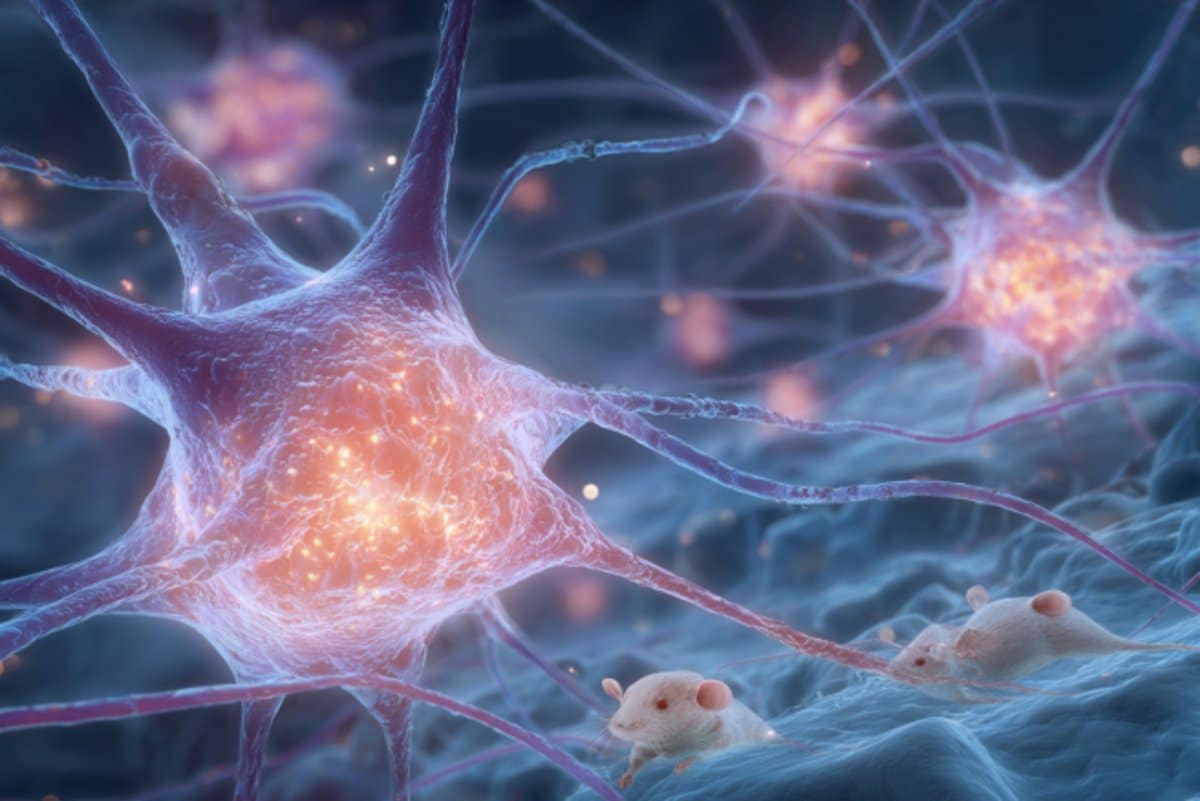Summary: A new study reveals that astrocytes, star-shaped brain cells in the striatum, are key players in how obesity alters brain function and metabolism. Researchers showed that manipulating astrocyte activity in obese mice improved their cognitive flexibility and metabolic regulation.
These findings highlight astrocytes’ overlooked role in maintaining brain health and energy balance. The results open promising avenues for targeting astrocytes to treat cognitive and metabolic disorders associated with obesity.
Key Facts:
- Astrocyte Role Uncovered: Astrocytes regulate both cognitive function and metabolism in obesity.
- Striatum Target Identified: Changes in striatal astrocytes link diet, pleasure, and brain health.
- Restoration Possible: Chemogenetic manipulation of astrocytes improved learning and energy balance in mice.
Source: CNRS
Fatty diets and obesity affect the structure and function of astrocytes1, the star-shaped brain cells located in the striatum, a brain region involved in the perception of pleasure generated by food consumption.
What is even more surprising is that by manipulating these astrocytes in vivo in mice can influence metabolism and correct certain cognitive changes associated with obesity (ability to relearn a task, for example).

These results, described by scientists from the CNRS2 and the Université Paris Cité, are to be published on 7 July in the journal Nature Communications.
These discoveries reinforce the idea that astrocytes (long neglected in favour of neurons) play a key role in brain function.
They also demonstrate, for the first time, the ability of astrocytes to restore cognitive function in the context of obesity, opening up new avenues of research to identify their exact role in energy metabolism.
These conclusions were reached using a combination of ex vivo and in vivo approaches in rodents, including chemogenetic techniques3, brain imaging, locomotion tests, cognitive behaviour and measuring the body’s energy metabolism.
Notes
1 – Unlike neurons, astrocytes (nervous system cells) do not generate electrical activity, which has made them less easy to study in the past. However, thanks to improvements in observation techniques, we now know that their close cooperation with neurons is essential to the proper functioning of the nervous system.
2 – Reporting to l’Unité de biologie fonctionnelle et adaptative (CNRS/Université Paris Cité). Scientists from l’Institut de biologie Paris-Seine (CNRS/Inserm/Sorbonne Université) were also involved.
3 – Calcium is an essential chemical element for astrocyte function, enabling synaptic activity to be modulated. The chemogenetic technique employed was based on the use of a virus, to express, in a targeted manner in the astrocytes, a protein that could modulate calcium flow in the cell, rather like a switch. The scientists were thus able to study the effect of these calcium flows on the activity of the astrocytes and surrounding neurons.
About this neuroscience and obesity research news
Author: Aurélie MEILHON
Source: CNRS
Contact: Aurélie MEILHON – CNRS
Image: The image is credited to Neuroscience News
Original Research: Open access.
“Striatal astrocytes modulate behavioral flexibility and whole-body metabolism in mice” by Enrica Montalban et al. Nature Communications
Abstract
Striatal astrocytes modulate behavioral flexibility and whole-body metabolism in mice
Brain circuits in reward-associated behaviors are potent drivers of feeding behavior but also recently emerged as regulator of metabolism.
Short or chronic exposures to caloric food alter brain structures and are associated with increased astrocytes reactivity and pro-inflammatory responses in both mice and humans.
However, the role of striatal astrocytes in regulating adaptive and maladaptive behavioral and metabolic responses to energy-dense food remains elusive.
In this study we reveal that chemogenetic manipulation of the astrocytes in striatal structures can exert a direct effect on peripheral metabolism in male mice, and that manipulation of astrocytes in the dorsal striatum can alter peripheral metabolism and is sufficient to restore cognitive deficit induced by chronic high fat high sucrose (HFHS) diet exposure in obese mice.
Altogether, this work reveals a yet unappreciated role for striatal astrocytes as a direct operator of flexible behavior and metabolic control.






